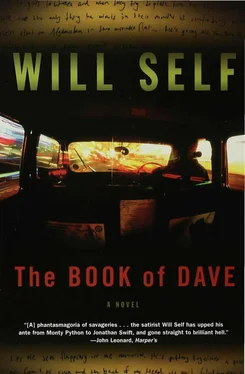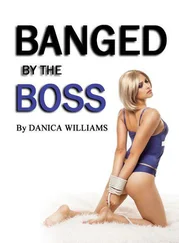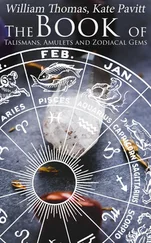Dave made to shut the door and the lead Turk stuck his foot in it. He knew they were only there to put the frighteners on him, smack me about a bit … so why am I reaching for Fred's gun? Why? P'raps I've simply 'ad enuff? Through the crack between the door and its hinge Mustafa saw Dave grab the shotgun. He ducked back, leaving Rifak exposed as the ex-cabbie levelled twin barrels at his gut. 'Get the fuck ahtuv-' Dave began to say. He didn't finish because the Turk threw himself forward, knocking the gun aside, and grabbed for his throat.
For a while there was a mercilessly inefficient struggle, neither one gaining an advantage — so that when Rifak did manage to get hold of the shotgun, it was with that element of shocked surprise with which a younger brother wrests a toy from his older sibling. Still in the giddy grip of his accomplishment, Rifak pulled both triggers — really just to see what might happen — and smoky flame tore a big chunk out of Dave's middle. Such a big chunk that for the moments before he fell a visible notch could be seen in Dave's side between his hip and his ribcage. Then he did fall, and, despite the liberal scarlet splashes, streaks and even blobs that rendered a chair, the newspaper, his cigarette packet and lighter, and one of Phyllis's darning mushrooms objects at once challenging and messy, Dave nevertheless found himself to be lunging up fresh blood.
Mustafa began the clean-up while the shotgun's report still echoed through the environs like the angry slamming of a giant car door. A quarter mile off Fred Redmond's sleep was perturbed by the after-echo. He stirred, thinking, Eye sware vat man puts vat byrdskara on urlia an urlia evri bluddë mawnin. The flock of crows lifted off from the ash plantation — oily rags flapping in the thickening sunlight. Mustafa calmly snapped on rubber gloves, took the shotgun from the stunned Rifak, wiped it down with a shirt-tail pulled from his crocodile-skin belt, kneeled and, taking the dying man's hands carefully in his own, arranged everything so that Dave held the trigger guard and the stock, while the gory muzzle was rammed in his chest cavity. Straightening up, Mustafa turned to Rifak. 'I tellya one fing,' he said in cockney, 'I'm not goin' dahn fer vis one, you div. They come lookin' — I'm pointin'. Now get in the fucking cab.'
As the Fairway pulled off up the lane with Mustafa driving, he adjusted the rearview mirror, so that he could check that the ex-cabbie truly was dying.
Dave was — and his entire life was passing before him. Not the significant or profound parts of it — his mother's love, Carl's birth, getting his badge, a priceless fuck — but the prosaica: the flicked spout of a milk carton; cash-point queues; the sweet rack in a video-rental outlet; a television programme about Flemish canals; warped furniture piled in front of a matchbox terraced house in Erith; the dirty 'tester' on a hospital wall; the loose chain on his moped when he was a Knowledge Boy; the name plaque reading JONCKHEERE on the bodywork of a coach juddering at a traffic light; the Hammersmith roundabout; a computer-generated phone call telling him he'd won a prize; a rolled-up ball of silver paper — but most of all, the fares. The fares, the endless succession of fares — their cropped faces in the mirror: male, female, old, young, white, brown, yellow, black (although it had to be conceded far fewer of these); their eyes wary, hesitant, bored, angry, screwed up with laughter, closed in a gob-stopping snog; their skin stretched and slack, lined and scored; their mouths purse-lipped, clenched, half open, sour goo on their mulish teeth. The fares, picking their noses, dabbing at their eyes and peering at him with self-satisfaction, confident in their own small nugget of Knowledge, which he, groaning, was forced to extract from them: Where to, guv? Where to, luv? Where to …? Where to …? Where to …?
Death itself Dave Rudman remained in ignorance of — he was a tourist, standing beside a large monument, staring bemusedly at the map that showed its location. True, as a dark crescent eclipsed his view of the sun, so he struggled to avoid unconsciousness, backpedalling into the present. His heart stopped, his legs pushed feebly against the doorjamb, his hands convulsed and his hips jerked — yet he couldn't hang on and expired like that, in quizzical pain.

The funeral was held at Willingale, a quiet little village a few miles away, deeper into the fastness of north Essex. Willingale — if it was remarked upon at all — was known for its two churches, which stood adjacent to one another, in a single churchyard overlooked by a sentinel yew and many massy beeches. One of these churches was Gothic enough — it had flinty walls and stepped buttresses that mounted to a castellated tower; the other, older edifice was a plain stone barn, with a shingled roof topped off by the characteristic vernacular campanile of Essex — a clapboard hutch rising to a tapered point. The yarn thereabouts was that the second church had been built by a wealthy lady who had fallen out with her sister over who took precedence in the pews of the first. The locals — credulous peasants that they were — had got it quite wrong; as anyone with the slightest architectural knowledge could have told them — and frequently had — Willingale's two churches were separated from one another by two hundred years in time, if only a hundred or so yards in space.
No one — not even Phyllis Vance — seriously doubted that Dave Rudman had taken his own life: the heavy history of depression, the toxic jungle of his brain chemistry, the loss of both son and career, the opportunity, the scrawled notes in the margins of the newspaper: EMPTY, I'VE HAD ENOUGH, TAKING THE PLUNGE. These were, if not incontrovertible truths, at any rate telling clues in the absence of any others. There were no others — the Turks, their cab, their breakfast at the Little Chef — no one had noticed any of this, while in Clapton, Fatima bore the consequences of the crime: more bruises on arms and legs, Rifak in a raki-sodden, self-piteous heap.
Even so, Phyllis Vance had enough canniness to introduce doubts into the mind of the local coroner, so many doubts that the death certificate laconically recorded the end of Dave's wayward journey through life with a further 'misadventure'.
If it bothered Phyllis that her lover was to be interred in Willingale — so near to and yet so remote from his native city — she showed no sign of it. In death she was more proprietorial of Dave Rudman than she had ever been during his life — she needed him near to her and Steve. Not that she was off-putting when it came to Michelle and Carl — she wanted them at the funeral more than anyone else; there to observe how properly it had all been arranged, and how skilfully she had talked round the priest — a circuit vicar who passed through Willingale once a month like a tardy rural bus service — into committing this recent and most unobservant of his parishioners.
For the fractured Devenish family — who had driven from London respectively silent, stunned and surly in their opulently padded seats — this voyage in their brand-new Volkswagen Touareg was way off road. Michelle, irretrievably lost in her memories of how it all went wrong, lacked even the spirit to argue with Cal when, bedevilled by nerves, he took wrong turning after wrong turning. In the back, immersed in a soundscape injected straight into his brain by a computer, Carl smirked, then winced. He couldn't tell which of them he hated more — his slutty mummy, his unreal real daddy, or the stupid fucking cabbie who'd blown his bollocks off. There were painful blisters full of nicotinic fluid on the insides of Carl's skinny arms, for at night, at the open window of his bedroom, looking out over the light lagoon of the city, he touched the furious tip of a cigarette to his own flesh, desperate to discover if he could feel anything at all any more.
Читать дальше













